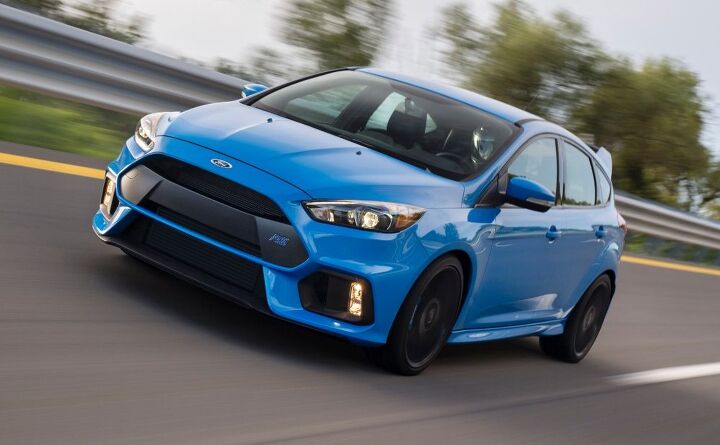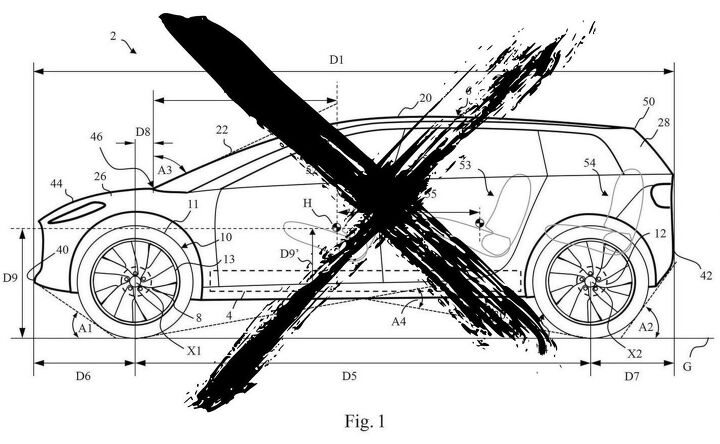#DeadOnArrival
European Emission Regulations Killed the Ford Focus RS
While Ford long ago put the kibosh on the Focus RS for this market, Europe planned on eventually bringing the blisteringly hot hatchback back from the grave. Unlike the United States, where the entire Focus line has been discontinued, European and Asian markets press onward with the car’s fourth generation. That model was originally presumed to include the performance-fixated RS variant; however, EU regulations have reportedly made that impossible.
The continent’s new CO2 emission mandates now require automakers to either meet a fleet-wide average of 95 grams of carbon dioxide per kilometre in 2021 or ready their accounts for sizable fines. With everything going on, Ford decided it wasn’t worth the trouble to try and make the model complaint. And yet the Focus RS isn’t some V8-powered monstrosity that’s single-handedly upping fuel prices. It uses the same, modestly sized 2.3-liter turbo found in many Ford products — just tuned for maximum output.
Dyson's Electric Automobile Bites the Dust
Despite Dyson’s promise of delivering multiple versions of an electric car that would surpass everything we’ve seen before and confirmation that it had functional prototypes already in testing, the company has axed its EV program entirely.
The firm announced its decision on Thursday, quoting founder James Dyson directly. “The Dyson Automotive team have developed a fantastic car; they have been ingenious in their approach while remaining faithful to our philosophies,” he explained. “However, though we have tried very hard throughout the development process, we simply cannot make it commercially viable.”
Dyson stated that the company was unable to find a buyer for the project, leading the board to suggest the £2.5 billion ($3.11 billion) automotive project be abandoned. While the corporation did not indicate how much of the capital was leftover, it said the funds would be used improve the Dyson Institute of Engineering and Technology or funneled into other tech programs. Any advancements stemming from its EV research will be utilized wherever possible — including commercial licensing agreements.

















Recent Comments